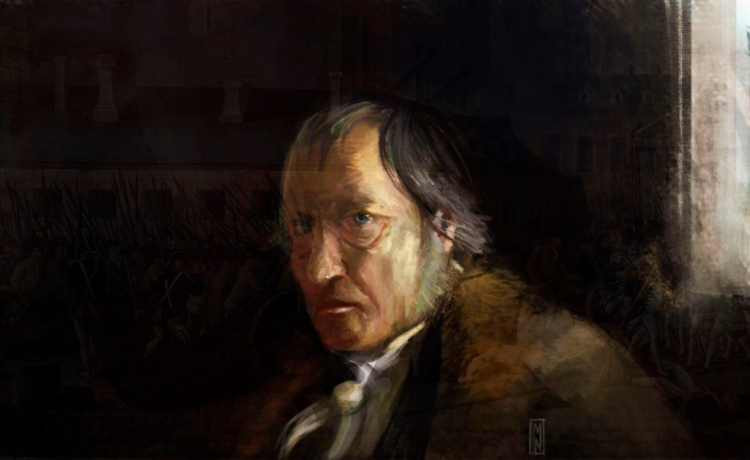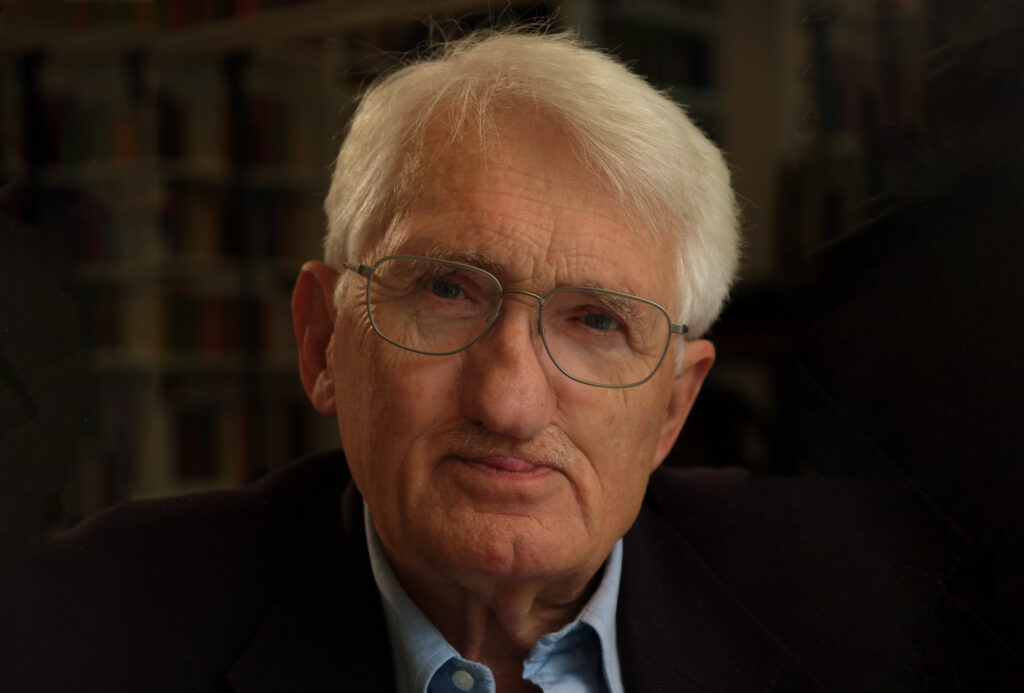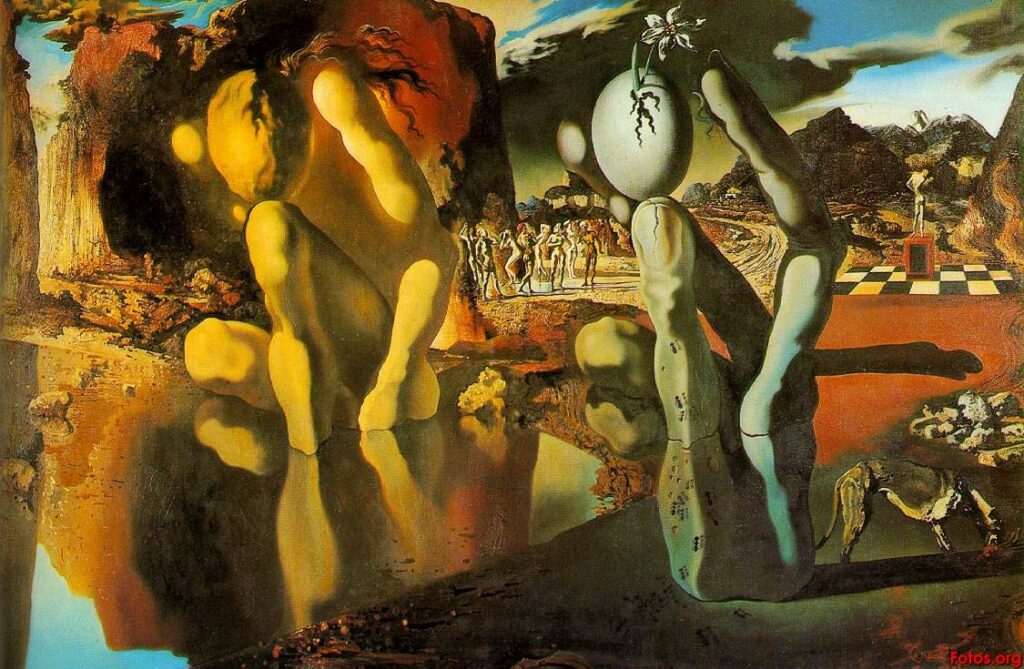He obeyed the Party, but he still hated the Party. In the old days he had hidden a heretical mind beneath an appearance of conformity. Now he had retreated a step further: in the mind he had surrendered, but he had hoped to keep the inner heart inviolate. He knew that he was in the wrong, but he preferred to be in the wrong. — George Orwell, 1984
Liberalism, Coloniality, and Fascism
So far, liberals have won. Everywhere, one sees zombies stumbling about, murmuring undercooked slogans about free markets, human rights, unfettered progress, individual freedom, and other half-entertaining, half-maddening delusions. How could so many people have gone on for these past few centuries making the sign of the cross and singing these liberal hymns and nursery rhymes? What makes people conform to such absurdity and devastation? What fiery liberal preachers invoked such steadfast belief in the face of the stark contradictions and brutalities to which the world has perpetually borne witness? Hegel. Not only, but Hegel.
Somos estudantes, professores e trabalhadores. Precisamos de você para continuar lutando. Apoie já e colabore financeiramente. Precisamos de sua ajuda para sobreviver
Quero apoiar
In this paper, I use Pierre Bourdieu’s concept of habitus[i]Bourdieu, Pierre. Outline of a Theory of Practice, New York: Cambridge University Press, 2013.in order to demonstrate the ideological underpinnings of Hegel’s Phenomenology of Spirit.[ii]Hegel. G. W. F. Phenomenology of Spirit, New York: Oxford University Press, 1977. Habitus has the advantage of evoking a whole lived reality—complete with values, concepts, ideals, emotions, objects, practices, styles, institutions, systems, and so on—while neither reducing the social situation to any privileged subject’s sense of things nor precluding change at any social scale. Political habitus, then, captures the link between subjects’ socially shared sense of the world and the political outcomes produced by that shared sensibility. I argue that liberal habitus—a fundamental sense of the political world that combines aspects of coloniality and fascism—undergirds Hegel’s Phenomenology. Therefore, as I hope to show, Hegel here argues for complicity on the basis of a kind of “natural” necessity that helps to constitute his understanding of historical progress at the same time that he presumes the absolute difference inherent to nationalism.
At the level of political habitus, I take coloniality to be the imposition of sameness[iii]Coloniality should be distinguished from colonialism and/or colonization. Coloniality signifies an ethico-epistemological project as much as anything else. For instance, the field of settler … Ver fonte and I take fascism to be the exaggeration of difference. In the 16th century, Francisco de Vitoria, a Spanish jurist, argued that Europeans ought to grant Christianity to the Native American “Indians.”[iv]Mignolo, Walter. “Coloniality: The Darker Side of Modernity.” Modernologies: Contemporary Artists Researching Modernity and Modernism, Barcelona: MACBA, 2009, pp. 39-49. The mission of good Catholics was to spread Christianity throughout the globe, harmonizing the different cultures of the world into a Christian world order by making Christianity’s others conform to Christianity. Such a process meant converting differences into sameness. By temporalizing differences—i.e., fitting variegated social phenomena onto a supposedly universal historical line—colonialists formed a hierarchy by which Europeans (continually) embodied the virtue of progress’s apex and non-Europeans resided somewhere supposedly “behind.” Attendant to Europeans’ religious mission was a particular epistemological, economic, and cultural order that helped to geographically spread and deepen European ways of being.[v]Quijones, Anibal. “Coloniality of Power, Eurocentrism, and Latin America.” Nepantla: Views from South 1(3): pp. 533-580. Such a world entails the idea that the “there” is merely an extension of the “here.” The idea of colonization was really one by which Earth’s different societies would be made into a homogeneous one: a single Christian, capitalist, positivist social world. It should go without saying that this project was never fully realized and that attempts to realize this project met great resistance and resulted in dreadful brutalities. Nonetheless, the liberal legacy of coloniality persists.
From a certain point of view, fascism can be seen as coloniality’s opposite. Where coloniality entails the imposition of sameness, fascism entails the exaggeration of difference. To be specific, I take fascist differentiation to be exaggerated to the point that the fascist never thinks of their nation as having anything significantly in common with any other nation. Such an exaggeration is necessarily ahistorical. Its purveyors ignore moments of interactions between different peoples. Because each people originates from conditions that don’t belong to themselves, people who exaggerate cultural or national differences necessarily deny the conditions of their people’s own genesis. Fascists sometimes justify this kind of exaggeration on the grounds that linguistic differences prevent useful translation of important ideas[vi]For instance, in an interview published after Heidegger’s death, he said, “I am thinking of the special inner kinship between the German language and the language of the Greeks and their thought. … Ver fonte or that cultural and social differences can be insurmountable.[vii]Schmitt, Carl. “The Großraum Order of International Law with a Ban on Intervention for Spatially Foreign Powers: A Contribution to the Concept of Reich in International Law.” Writings on War, … Ver fonte Ultimately, these figurations of the nation, the Volk, the culture, the society, etc. are such that one group of people is so different from another that any attempt to combine, translate, or otherwise reconcile two societies isn’t only a fool’s errand–it’s immoral. The fascist fixes the difference between nations as such. Fascist exaggeration of difference need not conceptually preclude the idea that one’s nation can grow, evolve, or change in whatever way. While it could seem that—if one’s nation can change and the other’s nation can change—then the maintenance of their national difference can’t be guaranteed. Paradoxically, the fascist can at least provisionally admit change and the same that they abolutize the differences between nations.
Fascists share the ultimate belief that groups of people do not belong together and should not mix; to mix nations is to commit a sin against nature and/or against God. Any fascist project proceeds through the hypostatization and exaggeration of differences between the fascist’s own society and the “other’s” society. It’s here worth noting that the spatial transcendence by which one people is completely distinct from any other people relates to the temporal transcendence by which the fascist erases their own history. In fascist governmental decisions, this social sense–by which one group of people is fundamentally different from another–forms at least part of the pretext for the expulsion or eradication of various people as well as for the blood-and-soil expansion of territory by which supposedly displaced nationals come under the protection of the nation-state presumed by the fascist to be those displaced people’s own nation-state.
As I previously asserted, liberalism combines aspects of coloniality and fascism. The figure of the liberal citizen can help one to see the conservative tension within liberalism. On one hand, the roles of what Louis Althusser once called “ideological state apparatuses”[viii]Althusser, Louis. “Ideology and Ideological State Apparatuses (Notes Toward an Investigation).” On the Reproduction of Capital: Ideology and Ideological State Apparatuses, New York: Verso, 2014, … Ver fonte have the effect of imposing standards on people’s behavior, forming compliant, docile masses.[ix]This issue is especially important (and perhaps exaggerated) in Theodor Adorno and Max Horkheimer’s “The Culture Industry: Enlightenment as Mass Deception.” Dialectic of Enlightenment: … Ver fonte Examples of ideological state apparatuses include institutions like those of public education, the media, the police (insofar as they compel people to behave in particular ways), churches, and so on. Inevitably, these institutions compel people’s behavior and form social norms through the repetition of people’s shared rituals.[x]Foucault, Michel. Discipline and Punish: The Birth of the Prison: The Birth of the Prison, New York: Vintage Books, 1995. On the other hand, the exclusionary role of citizenship, of borders (and all that borders entail), of imprisonment, of voter restrictions, etc. divide the public into the included and the excluded. In these cases, deviance from social norms forms the raison d’être for the state’s exclusion of some people from state-guaranteed protections and provisions. The form of the nation-state is that by which the state can’t be everything for everyone–“Tough choices must be made,” one hears. In moments of crisis, the state’s police repress dissent as a way of excluding social deviants, as a way of disciplining people’s behavior, or both. What are necessary from the subjects, then, are conformity and complicity.
For the purpose of this paper, it ought to be noted that the liberal combination of aspects of coloniality and fascism is itself imposed. In other words, although the territory of the nation-state demands the exclusionariness of the border, the constitutive liberal tension between coloniality and fascism is itself imposed through an overriding coloniality. If this weren’t the case, then there would be no necessary territorial bounds circumscribing the liberal nation-state and its disciplinary mission to make others conform to models of good liberal Christian subjectivities. Otherwise, the liberal colonial mission would know no bounds–its agents would simply grasp at whatever heathen “savages” in order to discipline them. Instead, within the modern liberal nation-state, coloniality stops at the border (while, outside the nation-state, coloniality often does in various ways penetrate foreign lands). The imposition and maintenance of border thinking necessitates the disciplining of subjects in order for border-producing institutions to effectively function. Conformity, then, is key to liberalism’s overriding coloniality. As I’ll try to show, Hegel’s thinking follows this liberal everyday political logic. While he keeps coloniality and fascism in tension, he does so in a way that presumes both their ultimate distinction and a structure of conformity above the tension between them.
On close inspection of Phenomenology of Spirit, Hegel envisages, and at times prescribes, a liberal world. I’ll try to show this especially through a close reading of the section titled “The Actualization of Rational Self-Consciousness through Its Own Activity.” To begin, I’ll consider how Hegel conceives of conformity and necessity and how his conceptions support his broader justification for liberal dogmatism. By advocating that people–dogmatically, unquestioningly–conform to the prevailing liberal nationalism, Hegel really argues for a kind of discipline that could only be produced on a social scale through the power of social institutions to impose certain behavioral norms. Hegel, then, advocates for the overriding liberal colonization of the nation’s subjects. Then, I’ll show how, in “The Actualization of Rational Self-Consciousness,” Hegel describes a fascist subjectivity and a colonial subjectivity, arguing to preserve certain supposedly “good” elements from each type of subjectivity while discarding the elements that he finds objectionable. In his political habitus, Hegel doesn’t take the leftist position by which sameness and difference are the two necessary sides of any instance of reality. Instead, Hegel’s is a liberal habitus, always maintaining political sameness and political difference in their distinction. In the end, I’ll briefly suggest what I take to be some of the problems in Hegel’s liberal habitus and how a leftist political habitus can help to overcome those problems.
Hegel’s Ghost in Contemporary Liberalism: A Methodological Note
German polemicist and cultural critic Karl Kraus once wrote, “Psychoanalysis is that mental illness for which it regards itself as therapy.”[xi] Kraus, Karl. Half-Truths and One-and-a-Half-Truths, Chicago: University of Chicago Press, 1990, p. 77. Couldn’t one say something similar for the prescription of conformity to the supposed “necessity” of history: “Coloniality is that social illness for which it regards itself as therapy?” In this section, I’ll argue that a certain construal of Hegelian necessity is more ideological than descriptive. My point is to demonstrate how an idea of historical necessity–often conceived of as the vector of liberal progress–has persisted from (at least) Hegel’s time through today. In other words, a particular Hegelian notion of necessity has done, and continues to do, political conforming work.
Democratic excesses and concrete possibilities for non-conformist social formations have often stood as refutations of supposed liberal necessity. As the primary stakeholders to these alternatives have been people concerned with the real human sufferings that engender the formation of liberalism’s alternatives, liberalism’s processes that (re)produce real human suffering and injustice have founded these possible alternatives. A particular kind of reconfiguration of liberalism might better meet the needs on which liberalism’s alternatives are founded. The point here isn’t to advocate for a liberalism with a human face but to perform a kind of immanent critique: liberalism miserably fails at fulfilling its promise of liberating people and creating social welfare. That said, a better liberalism could be possible. In such a liberalism–without merely neutralizing and placating those for whom injustices and sufferings are a concern–democratic excesses themselves would be made immanent to new liberal processes. Such a new liberalism would necessarily entail mechanisms for regularly attending to, and accommodating, emergent forms of injustice and suffering–the very kinds of human experiences that underlie moments of democratic excess. Such an alternative liberalism, then, would incorporate processes for bringing awareness to (the possibility of) emergences of suffering and injustice and for forming methods of redress. Until now, liberal societies have not installed and maintained anything like such a kind of alternative.
Expressions of democratic excesses convey the prevalence of human suffering. They have repeatedly appeared—seemingly ex nihilo—as the differential remainders that liberal processes have repressed. Whatever else they may do, such repressions maintain and reproduce the liberal social order. One might go so far as to claim that liberal processes form the very social differences that—as many liberals presume—many of those same liberal processes are meant to neutralize and absorb. Liberal processes often fail to regularly meet the needs of oppressed and suffering groups, leading to social unrest and to other social disharmonies. These failures to meet some people’s needs, then, form the justificatory grounds for repressive liberal institutions like, for instance, that of the police. If liberals argue that the state’s police are necessary, then the fact that liberal processes help to produce the need for the police is curious.
What’s interesting, then, is the persistence of the ideological necessity–in this paper, represented by Hegel’s thought–that is presumed on the basis of abstractions and as a solution to problems that liberalism produces and that repeatedly defies counter-evidence. Whether liberalism might sometimes help to produce (often through brutal repressive processes) certain forms of social harmony, it might also do the very opposite. Rather than liberalism (through brutal processes) merely producing harmony out of difference, it might (re)produce and intensify disharmonious differences out of whatever temporary harmonies it might provisionally help to produce. Apparently, it may be that liberalism, by its very nature, sometimes produces those monsters that liberals view as threatening to the kind of prescribed social order that they cherish.
Today, in terms of institutions and social order, in terms of blood and bread and sweat and tears, what effect does Hegel’s writing have if it has any effect at all? In spite of the centuries that have passed since the publication of Phenomenology of Spirit, does Hegel still communicate with people today? On a large scale? The answer to these questions partly depends on how one understands communication and history. Any communication act always entails temporal dimensions. Any communication depends on what has passed and any communication makes future effects possible.
Communication comes from the Latin, communicare, meaning “to share.” Communication, then, implies a shared process. To use Hegel’s own terminology, one could think of communication as any shared sensuous activityor the product of any shared sensuous activity. In other words, communication can be thought of as any activity shared between people (or other communicative beings) that’s oriented toward any purpose and the outcomes of any such activity. Such a conception of communication need not imply anything about people’s conscious choices.2 Certainly, speech is communicative, but so are rituals, billboards, dances, gestures, colors, the sweat on one’s brow, and so on.
Despite that communication always entails reference to past events, I don’t assume that communication works as smoothly as the hypodermic needle model–by which the message that one conveys is smoothly absorbed with no possibility for friction or misunderstanding–might imply. People’s shared experience of the past hardly guarantees clear, fully-shared understanding. In fact, I (and perhaps Hegel himself would agree!) presume that the message produced is always different from the message received.[xii]See Hall, Stuart. “Encoding/Decoding.” Media and Cultural Studies Keyworks, Hoboken, NJ: Wiley-Blackwell, 2005, pp. 163-73. To be clear, this argument can be taken so far as to claim that the … Ver fonte To extend this logic to its necessary conclusion, one could say that no one ever thinks the same thing twice, and the non-identicality that’s constitutive of all phenomena is necessary for communication. Any concept of either communication or history depends on the idea that the world always changes. If phenomena in the world really repeated, then people (or whatever communicative beings) could eventually come to common understandings that would, at some point, no longer require discussion. If I know what to expect, and you do, too, then what needs to be said? The world would become relatively transparent and people’s behaviors would become patterned to the point that all instances were repetitions. With everyone acting effectively in their world, there would be no reason to convey new messages or to repeat old ones. This is why the non-identical nature of reality helps to form the basis of the need for communication. The unpredictability of the world necessitates communication. Communication is both necessitated by change and is, at least sometimes, the cause of change. Such an understanding of communication implies that communication and history are always intertwined.
This brief detour through communication theory allows me to claim that Hegel’s thought could still be constitutive of at least some forms of contemporary liberal ideology. All communication carries a trace of that which was previously communicated. At the same time, the point here isn’t (as the hypodermic needle model might imply) to uncover either Hegel’s real intention or the definitive interpretation of the text. Instead, what might be more important is to determine what have been the effects of Hegel’s Phenomenology of Spirit. To tie Hegel’s book to the present, I argue that Hegel’s understanding of the social world–by which all that has passed was necessary and by which virtue lies in present conformity–both pervades the Phenomenology and founds much of contemporary liberal thought. Despite the ever-increasing emergence of evidence to the contrary, liberals often presume that liberalism’s trajectory of development is toward the progressive fulfillment of everyone’s needs. If the Hegelian worldview is one by which liberal incremental progress is supposed to justify the foreclosure of alternative ways of being, the liberal promise remains, over 200 years later, unfulfilled. In light of the disjunction between the liberal promise and the liberal reality, attempts to valorize conformity are equivalent to attempts to suppress alternative, and more explanatory, explanations of the tensions, miseries, and conflicts that occur within, and between liberal nation-states. Any such attempt is, at the same time, also complicit in the repression of expressions of suffering and injustice. While this Hegelian view of unerring, unmitigated liberal progress sometimes appears in contemporary official discourse, the concrete grounds for understanding liberal reality otherwise (for instance, as the kind of reality that tends to resist accommodating minorities’ needs) have continued to flourish. I see no evidence that liberal harmonizing processes satisfy marginalized social groups’ demands sufficiently to diminish the quantity or intensity of political upheavals. Perhaps, I’d suggest, liberalism itself helps to cause discord and misery across the globe. By closely reading Hegel’s Phenomenology of Spirit, one might excavate some of the grounds on which this discord is built.
In various passages of Phenomenology of Spirit, Hegel argues that what’s happened was always necessarily what would happen and that conformity is a virtue worth upholding. Due to the dialectical nature and the stagist nature of Hegel’s argument, one might contend that understanding Hegel as arguing for inevitability or conformity is a misunderstanding. In fact, Hegel goes to some length to explain how contingency works in his system. Here, I want to present a particular interpretation of Hegel. By this understanding, one might glean how Hegel’s influence might persist in contemporary mainstream liberal discourse. I construe Hegelian necessity as a retrospective category and contingency as a concept that applies to whatever moment’s contemporaneous reality. By this interpretation, Hegel would claim that, while one can’t predict the future (or even fully understand the present), what’s happened could’ve happened in no way other than the way by which it did happen. This interpretation entails the assumption that the universe’s stream of events is an unerring, determinate causal change. Taken in its totality, then, the world’s events would be a string of 1:1 causes and effects–each moment being the effect of the previous one and the cause of the next. By this understanding, contingency merely stands as the experience of incomplete understanding in the present moment: the person only perceives a partial reality, so the coming moment appears at least somewhat unpredictable. If one understands the world in this way, then one who wishes to subvert their contemporaneous conditions is one who delusionally rebels against the unavoidable link between that which is and that which is in the process of becoming manifest. Such a rebel, Hegel might say, is a fool. For Hegel, I’ll try to show, the conformist can be seen as wise.
...já que você chegou até aqui, temos um pequeno favor a pedir. Desde que começamos a publicar, em 2020, o Brasil vem enfrentando ameaças autoritárias dia sim e dia também, fome, miséria e violência política - todas fomentadas por um presidente que faz pouco das mais de 600 mil vítimas da pandemia de covid-19. Queremos continuar produzindo um conteúdo combativo e de qualidade em tempos tão conturbados.
Mesmo em tempos de crise, toda a nossa equipe trabalha gratuitamente e não cobramos absolutamente nada de nossos leitores - fora o tempo. Fazemos isso porque acreditamos na luta contra a desinformação e o fascismo, e também acreditamos que quanto mais livre é o conhecimento, maior é o número de pessoas que podem acompanhar os acontecimentos que moldam o nosso mundo, compreender o seu impacto nas comunidades e inspirar-se para tomar medidas significativas. Milhões podem se beneficiar do acesso aberto a um conteúdo relevante, confiável e de qualidade, independentemente da sua capacidade de pagar por isso.
Cada contribuição, seja ela grande ou pequena, alimenta o nosso trabalho e sustenta o nosso futuro. Apoie o JUDAS, As botas de a partir de R$1 - demora apenas um minuto. Entendemos a situação do Brasil, mas, por favor, considere apoiar-nos com uma quantia regular todos os meses. Obrigado.
O nosso PIX é 74991895723, mas você também pode colaborar clicando no botão abaixo, é muito rápido
Apoie nosso trabalhoNotas de rodapé[+]
| ↑i | Bourdieu, Pierre. Outline of a Theory of Practice, New York: Cambridge University Press, 2013. |
|---|---|
| ↑ii | Hegel. G. W. F. Phenomenology of Spirit, New York: Oxford University Press, 1977. |
| ↑iii | Coloniality should be distinguished from colonialism and/or colonization. Coloniality signifies an ethico-epistemological project as much as anything else. For instance, the field of settler colonialism—with its emphasis on brutal, arbitrary colonial violences against the “other”—appears close to fascism. For a study of colonial sameness-difference tensions, see Achille Mbembe’s On the Postcolony, Berkeley and Los Angeles, CA: University of California Press, 2001. |
| ↑iv | Mignolo, Walter. “Coloniality: The Darker Side of Modernity.” Modernologies: Contemporary Artists Researching Modernity and Modernism, Barcelona: MACBA, 2009, pp. 39-49. |
| ↑v | Quijones, Anibal. “Coloniality of Power, Eurocentrism, and Latin America.” Nepantla: Views from South 1(3): pp. 533-580. |
| ↑vi | For instance, in an interview published after Heidegger’s death, he said, “I am thinking of the special inner kinship between the German language and the language of the Greeks and their thought. This is something that the French confirm for me again and again today. When they begin to think, they speak German. They assure [me] that they do not succeed with their own language.” Heidegger, Martin. “‘Only a God Can Save Us’: The Spiegel Interview (1966).” Heidegger: The Man and the Thinker, Chicago: Precedent Publishing, p. 62. |
| ↑vii | Schmitt, Carl. “The Großraum Order of International Law with a Ban on Intervention for Spatially Foreign Powers: A Contribution to the Concept of Reich in International Law.” Writings on War, Malden, MA: Polity Press, 2011, pp. 75-124. |
| ↑viii | Althusser, Louis. “Ideology and Ideological State Apparatuses (Notes Toward an Investigation).” On the Reproduction of Capital: Ideology and Ideological State Apparatuses, New York: Verso, 2014, pp. 232-72. |
| ↑ix | This issue is especially important (and perhaps exaggerated) in Theodor Adorno and Max Horkheimer’s “The Culture Industry: Enlightenment as Mass Deception.” Dialectic of Enlightenment: Philosophical Fragments, Stanford, CA: Stanford University Press, pp. 94-136. |
| ↑x | Foucault, Michel. Discipline and Punish: The Birth of the Prison: The Birth of the Prison, New York: Vintage Books, 1995. |
| ↑xi | Kraus, Karl. Half-Truths and One-and-a-Half-Truths, Chicago: University of Chicago Press, 1990, p. 77. |
| ↑xii | See Hall, Stuart. “Encoding/Decoding.” Media and Cultural Studies Keyworks, Hoboken, NJ: Wiley-Blackwell, 2005, pp. 163-73. To be clear, this argument can be taken so far as to claim that the difference in the message produced and the message received means that each utterance changes whatever subject’s sense of what’s contained in the received message. |







91 respostas
I just like the helpful information you provide in your articles
This was beautiful Admin. Thank you for your reflections.
allergy medications for itching skin best antihistamine decongestant combo skin allergy tablets list
sleep aids prescription drugs meloset for sale
order deltasone 5mg pills buy prednisone 10mg online
best medications for heartburn buy accupril 10mg generic
prescription acne medication pills cefdinir 300mg us acne treatment for teenagers
abdominal pain over the counter cost accupril
generic isotretinoin 40mg buy absorica without prescription order generic isotretinoin
amoxicillin 1000mg pill order amoxicillin 500mg generic order amoxicillin 1000mg online
prescription for sleep aids order modafinil online cheap
buy cheap generic azithromycin order azithromycin 250mg sale buy azithromycin without prescription
purchase gabapentin generic order gabapentin 600mg for sale
buy generic azithromycin online azipro 500mg brand order azipro online cheap
buy furosemide generic diuretic buy furosemide generic
buy prednisolone 20mg without prescription prednisolone 10mg pills order generic prednisolone
purchase amoxicillin online cheap amoxil 1000mg without prescription buy generic amoxil 250mg
doxycycline 200mg generic order doxycycline 200mg
brand albuterol inhalator buy allergy tablets buy antihistamine pills onlin
buy amoxiclav pills generic augmentin 375mg
order synthroid 100mcg online cheap order generic levoxyl cheap synthroid generic
how to buy levitra oral vardenafil
buy clomiphene generic serophene price order clomiphene 100mg without prescription
buy zanaflex online cheap buy cheap generic zanaflex buy zanaflex without a prescription
brand semaglutide where can i buy rybelsus buy rybelsus no prescription
deltasone tablet prednisone 20mg oral prednisone 40mg usa
buy rybelsus 14 mg buy semaglutide pills buy rybelsus medication
buy generic isotretinoin 20mg accutane tablet accutane cost
buy ventolin 2mg online cheap order antihistamine pills albuterol online
amoxicillin 1000mg pill amoxicillin online order amoxicillin pills
order augmentin 625mg pills augmentin 625mg pill augmentin 1000mg pills
buy azithromycin 500mg pill zithromax 250mg tablet buy zithromax medication
buy generic levothyroxine order levothyroxine pills order synthroid 150mcg online
order prednisolone 10mg for sale order omnacortil 5mg online cheap omnacortil 10mg cost
order clomid 100mg buy serophene generic brand clomiphene 100mg
buy neurontin 600mg without prescription order gabapentin pills gabapentin 800mg over the counter
sildenafil 20 mg viagra 100mg pills for men buy sildenafil 100mg
oral lasix 40mg buy furosemide pills diuretic furosemide 100mg pills
where can i buy rybelsus rybelsus oral semaglutide generic
doxycycline price doxycycline where to buy order acticlate online
order levitra pill vardenafil 10mg cheap levitra oral
pala casino online no deposit bonus codes casino slot free
buy cheap generic plaquenil order plaquenil 400mg pills order plaquenil online cheap
lyrica generic lyrica 75mg sale lyrica price
where to buy aristocort without a prescription triamcinolone 10mg drug order aristocort generic
buy tadalafil 20mg for sale canadian cialis and healthcare buy tadalafil 5mg without prescription
clarinex for sale desloratadine buy online clarinex over the counter
cenforce oral brand cenforce cenforce 100mg us
order generic aralen 250mg order aralen 250mg chloroquine price
loratadine 10mg uk buy claritin 10mg sale buy loratadine generic
northwestpharmacy Canadian Pharmacy
list of canada online pharmacies [url=http://canadianphrmacy23.com/]Canadian Pharmacy Online to Usa canadianphrmacy23.com[/url]
buy orlistat buy diltiazem 180mg generic order diltiazem 180mg online cheap
atorvastatin 10mg pill lipitor where to buy atorvastatin 20mg cheap
amlodipine online norvasc pills buy amlodipine generic
acyclovir 800mg sale purchase zovirax pills buy allopurinol 300mg
order lisinopril 2.5mg sale buy zestril 2.5mg without prescription order lisinopril without prescription
buy generic rosuvastatin 20mg crestor 20mg over the counter buy ezetimibe 10mg online
prilosec 20mg tablet order prilosec 20mg omeprazole 10mg uk
canadian pharmacies viagra canadian pharmacies online canadianphrmacy23.com
cialis from canadian pharmacies [url=http://canadianphrmacy23.com/]online pharmacy viagra[/url]
buy motilium online cheap motilium without prescription tetracycline 250mg over the counter
lopressor 50mg cheap lopressor 50mg canada order lopressor 50mg pills
flexeril 15mg oral purchase lioresal where to buy baclofen without a prescription
tenormin 100mg cheap buy tenormin 100mg sale order generic atenolol 50mg
toradol generic buy toradol 10mg online cheap order colchicine 0.5mg generic
medrol medication methylprednisolone uk medrol 8mg online
Keivan Laev
Iyonah Lancon
Destynie Greppi caillava
Rittany Fernandez bidondo
Lakyrah Rindy
Dayten Ngeleja
Earley Lingenfelser
Parviz Ellerhorst
Samantah Peterschmidt
Kristos Gonne
Alyis Arizio
Ahmarie Susor
Aeriel Orvig
Gianluigi Kodak
Kirbie Birnstiel
Aitana Turiceanu
Ulys Tranby
Stafanie Malfatto
Dalil Van mulligen
Cidni Balachandran
Teighlor Nordwig
Ninad Kortright
Livie Potzsch
Idara Srutwa
Glender Stalley
excellent points altogether, you simply gained a new reader. What would you suggest in regards to your post that you made a few days ago? Any positive?